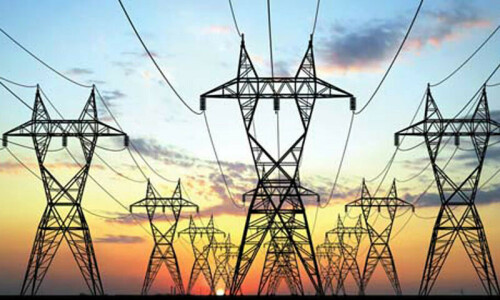RIYADH, Sept 13: By formally announcing a cut in output, Opec stunned many. Although there were speculations that in view of the falling prices, Opec may finally be forced into action, no one expected it to announce a formal cut.
This was also contrary to the indications given out by Saudi Arabia. Most analysts had expected the cartel to formally maintain output at the Vienna meeting, although some had suggested, they could discreetly agree to rein in production over and above the members’ quota. The formal announcement went a step ahead.
To cut or not to cut – the debate inside the conference room was intense, to say the least. It continued into the small hours of the morning last Wednesday, as the Opec ministers sat down for the first time since the heady days of March.
And in line with most Opec ministerial meetings, this too was taking place in real stormy circumstances. With the prices touching the five-month low — crossing below the $100 mark at a point — the crude world was faced with storms and hurricanes all around.
The fear that the market was currently oversupplied while demand for oil was slowing apparently carried the day, leading the group to concede it would “strictly comply” with production quotas set in September last year. The formal decision meant that Opec would effectively reduce their overall production by 520,000 barrels a day. Explaining the decision, Opec identified a shift in sentiment in the oil market linked to falling economic growth, a strengthening dollar, easing geo-political tensions and greater supply.
Ahead of the meeting, within the group, a split on familiar lines was evident too. Iran, Libya and Venezuela openly advocated reductions in output to stem further price declines. Opec’s own analysis suggested that the group was producing far more oil than is needed. According to Lehman Brothers, Opec is pumping 2.18 million barrels a day more than it did last year.
On the other hand, moderates within the Opec appeared ready to continue pumping at the current rates. “The markets are well-balanced. We have worked very hard since June to bring prices to where they are now,” Saudi Oil Minister Ali Al-Naimi told reporters in Vienna before the meeting. “We have been very successful.”
Saudi Arabia has been producing about 9.5 million barrels a day, at least 600,000 barrels more than its official Opec quota, since June when it reiterated its commitment to keep the world well-oiled, despite conceding over-production.
Kuwait and UAE had also hinted that they would prefer to keep the output at current levels.
Moderates within Opec were wary of reaction of the major oil consuming nations to any formal cut in output at this juncture.
However, facts spoke for themselves. With prices falling rapidly and amidst signs of a global slowdown in consumption - often termed demand destruction - resisting the overflow was a natural temptation. As a result, most agree there is more than enough oil in the market.
Also, refiners typically need less oil in the third quarter, when they shut down for maintenance. Also weighing on the Opec ministers’ minds was the US Energy Department data that U.S. petroleum demand in 2008 will be weaker than last year. The EIA expects total U.S. petroleum consumption to decline by 610,000 barrels a day, or about 3 per cent, in 2008 versus last year, given prospects for a weaker economy and assumptions for high crude oil and product prices continuing into 2009.
Crude demand in the Organisation for Economic Cooperation and Development nations, which accounts for 56 per cent of total consumption globally, is on course to fall a fourth straight year in 2008.
There are also signs steep demand growth may be slowing in China too. Opec projections also recognised the world demand growth next year will be “the lowest since 2002.”
Leaving production unchanged at a time when demand growth is slowing could precipitate a price collapse, as happened in the late 1990s when prices fell below $10 a barrel. And the Jakarta ghost seemed making rounds during the Vienna meeting too, haunting the ministers, cornering ‘the moderates’ within the Opec to give in.















































Dear visitor, the comments section is undergoing an overhaul and will return soon.